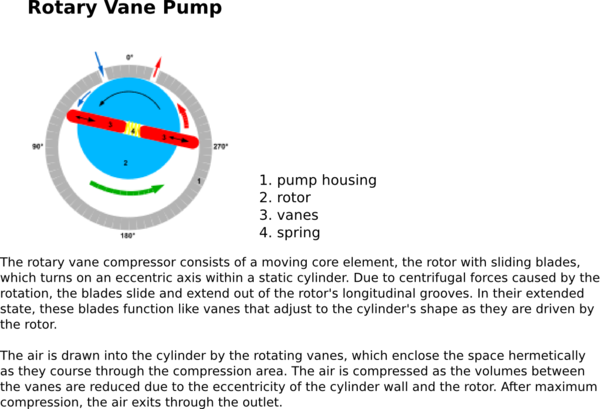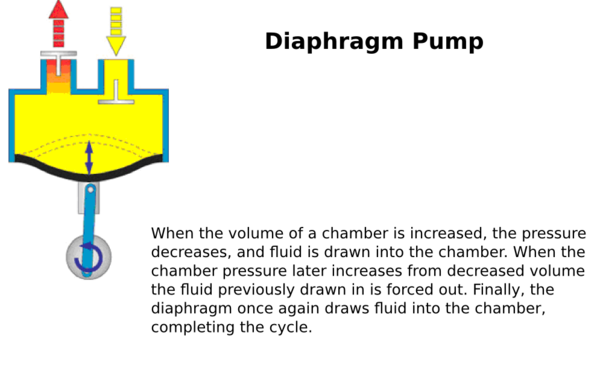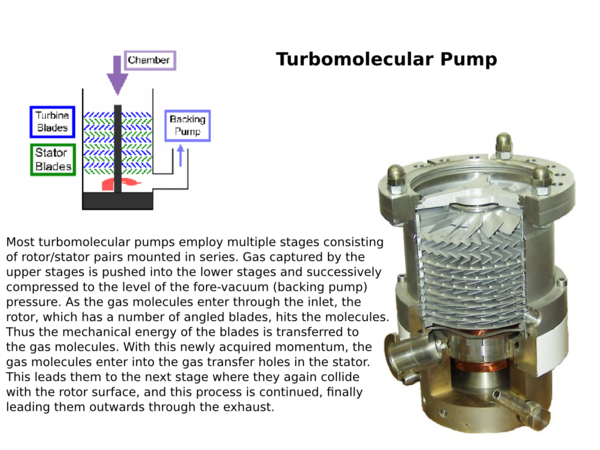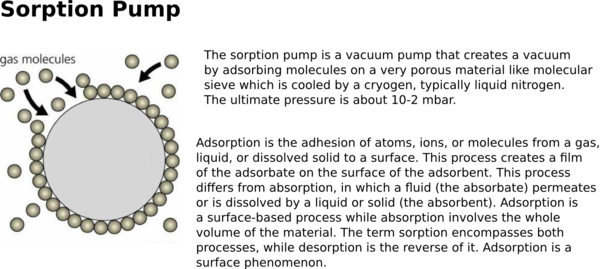Difference between revisions of "Pumping Systems"
(→Positive Displacement Pumps) |
|||
| Line 6: | Line 6: | ||
[[File:Rotary_vane_pump.png| 600px]] | [[File:Rotary_vane_pump.png| 600px]] | ||
| + | [[File:Diaphragm_pump.png|600px]] | ||
| − | Momentum transfer: Uses high speed jets of dense fluid or high speed rotating blades to knock gas molecules out of the chamber. | + | == Momentum Transfer Pumps == |
| + | Momentum transfer: Uses high speed jets of dense fluid or high speed rotating blades to knock gas molecules out of the chamber. | ||
| − | [[File: | + | [[File:Turbo_pump.png|600px]] |
| − | + | == Entrapment Pumps == | |
| − | [[File: | + | Capture gases in a solid or adsorbed state. |
| + | |||
| + | [[File:Sorption_pump.png|600px]] | ||
| + | |||
| + | '''Useful Links:''' | ||
| + | |||
| + | [http://en.wikipedia.org/wiki/Rotary_vane_pump| Rotary Vane Pump] | ||
| + | |||
| + | [http://en.wikipedia.org/wiki/Diaphragm_pump| Diaphragm Pump] | ||
| + | |||
| + | [http://en.wikipedia.org/wiki/Turbomolecular_pump| Turbomolecular Pump] | ||
| + | |||
| + | [http://en.wikipedia.org/wiki/Sorption_pump| Sorption Pump] | ||
Latest revision as of 14:32, 7 November 2014
Three types of pump systems: positive displacement, momentum transfer, and entrapment.
Positive Displacement Pumps
Positive displacement: Uses a mechanism to repeatedly expand a cavity, allow gases to flow in from the chamber, seal off the cavity, and exhaust it to the atmosphere.
Momentum Transfer Pumps
Momentum transfer: Uses high speed jets of dense fluid or high speed rotating blades to knock gas molecules out of the chamber.
Entrapment Pumps
Capture gases in a solid or adsorbed state.
Useful Links:



